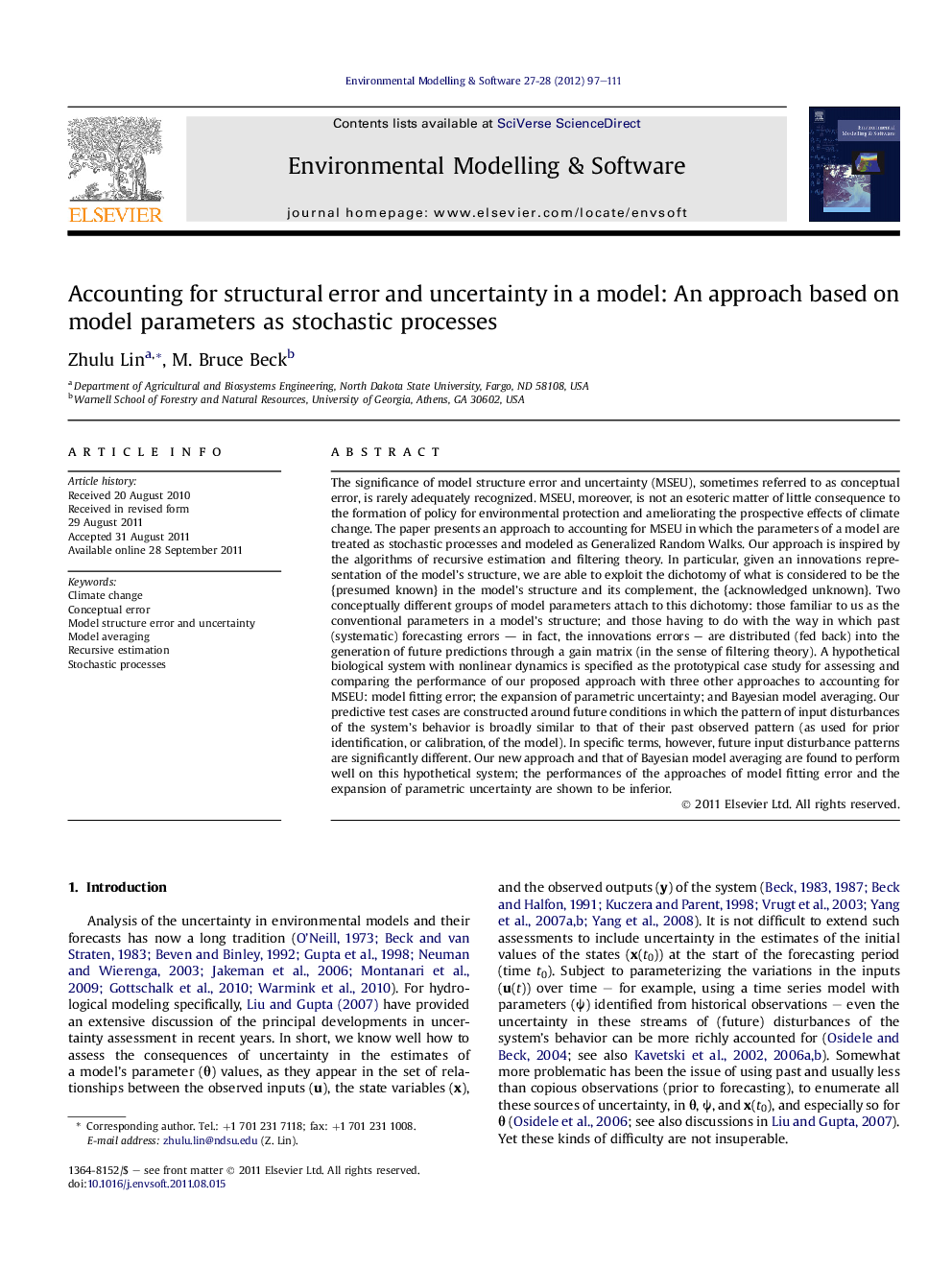| کد مقاله | کد نشریه | سال انتشار | مقاله انگلیسی | نسخه تمام متن |
|---|---|---|---|---|
| 570241 | 1452321 | 2012 | 15 صفحه PDF | دانلود رایگان |

The significance of model structure error and uncertainty (MSEU), sometimes referred to as conceptual error, is rarely adequately recognized. MSEU, moreover, is not an esoteric matter of little consequence to the formation of policy for environmental protection and ameliorating the prospective effects of climate change. The paper presents an approach to accounting for MSEU in which the parameters of a model are treated as stochastic processes and modeled as Generalized Random Walks. Our approach is inspired by the algorithms of recursive estimation and filtering theory. In particular, given an innovations representation of the model’s structure, we are able to exploit the dichotomy of what is considered to be the {presumed known} in the model’s structure and its complement, the {acknowledged unknown}. Two conceptually different groups of model parameters attach to this dichotomy: those familiar to us as the conventional parameters in a model’s structure; and those having to do with the way in which past (systematic) forecasting errors — in fact, the innovations errors – are distributed (fed back) into the generation of future predictions through a gain matrix (in the sense of filtering theory). A hypothetical biological system with nonlinear dynamics is specified as the prototypical case study for assessing and comparing the performance of our proposed approach with three other approaches to accounting for MSEU: model fitting error; the expansion of parametric uncertainty; and Bayesian model averaging. Our predictive test cases are constructed around future conditions in which the pattern of input disturbances of the system’s behavior is broadly similar to that of their past observed pattern (as used for prior identification, or calibration, of the model). In specific terms, however, future input disturbance patterns are significantly different. Our new approach and that of Bayesian model averaging are found to perform well on this hypothetical system; the performances of the approaches of model fitting error and the expansion of parametric uncertainty are shown to be inferior.
► We present an approach to accounting for model structural error and uncertainty.
► Model structure is dichotomized into the {presumed known} and the {acknowledged unknown}.
► Model parameters are treated as stochastic processes rather than random variables.
► Four approaches are compared in a hypothetical case study.
► Our approach performs as well as that of Bayesian model averaging.
Journal: Environmental Modelling & Software - Volumes 27–28, January–February 2012, Pages 97–111